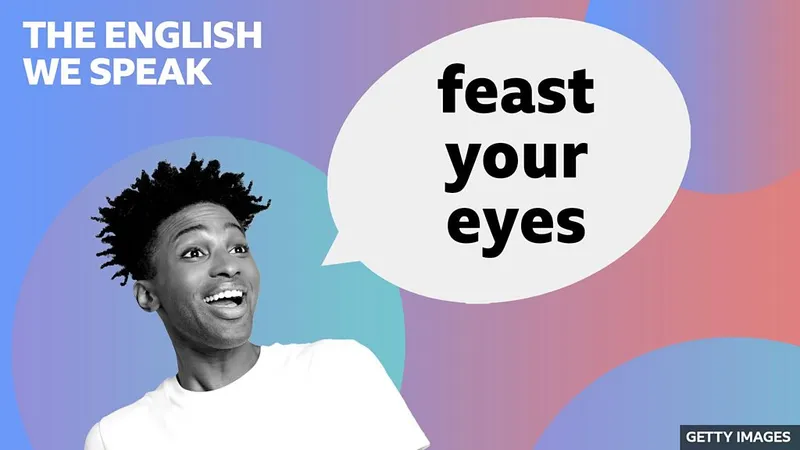Feifei Hello and welcome to The English We Speak. It’s me, Feifei…
Rob …and it’s me, Rob. Now, Feifei, have you been baking again?
Feifei I have, Rob. As you can see, I’ve been very busy – so, feast your eyes on these cookies.
Rob Oh wow – so many. Thanks! I’ll start with the chocolate chip cookies, shall I?
Feifei Stop! What are you doing?
Rob Well, I’m feasting on your cookies – like you said. You meant ‘eat lots’, didn’t you?
Feifei No, I said ‘feast your eyes’ on them – not just ‘feast on them’.
Rob Oh… so no eating, just looking?
Feifei Exactly! To ‘feast your eyes’ on something means enjoy - or even be amazed by – looking at something because of the quantity, quality or beauty of what you see. So, Rob, you can look at all my amazing cookies, but don’t eat them.
Rob Oh, really?
Feifei Yes, really. Now, feast your eyes - and ears – on these examples instead!
Examples This is the best room in the hotel – feast your eyes on the amazing view.
I’ve prepared a special birthday meal – feast your eyes on all this food.
The new art exhibition is a feast for your eyes – the artist has used so many colours.
Feifei This is The English We Speak from BBC Learning English, and we’re hearing about the phrase ‘feast your eyes on something’ – it means look at or be amazed by what you see.
Rob But Feifei, what is the point of just looking at food and not eating it?
Feifei Because they aren’t for you. They’re a present for Roy – it’s his birthday. But if you ask him nicely, he might just give you one.
Rob Just one cookie isn’t really a feast – but it’s better than just looking.
Feifei Rob, I think your eyes are bigger than your belly!
Rob Thanks Feifei. Now hurry up and give Roy his birthday present, please!
Feifei OK. Bye.
Rob Bye.
